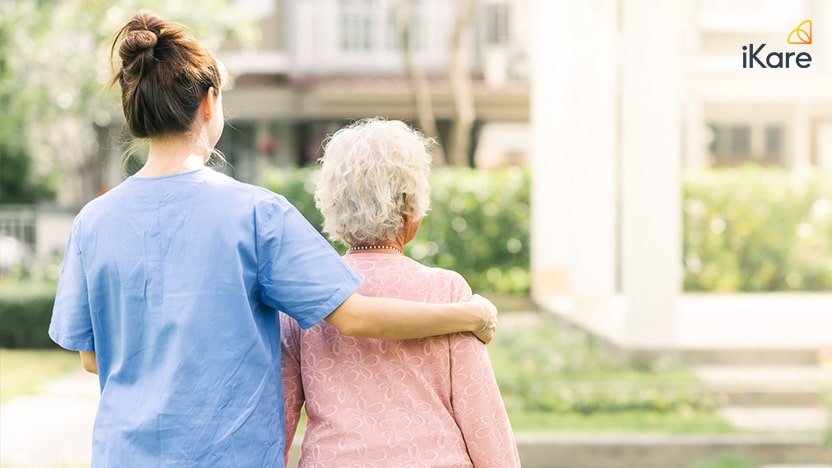
Being a caregiver to a loved one is a noble act driven by love and dedication. However, amidst the responsibilities of tending to the needs of others, caregivers often neglect their own well-being. For this reason, it’s crucial for caregivers to pause and prioritise themselves even as they strive to provide the best possible care. In this article, we’ll explore the importance of self-care for caregivers, delving into key strategies to prevent caregiver burnout and maintain quality of life.
Recognising the signs of burnout

Are you experiencing feelings of exhaustion, irritability, or overwhelm? Have you noticed that you’re prioritising the needs of others over your own well-being? These could be warning signs of caregiver burnout, which can also be accompanied by symptoms such as headaches, muscle tension, or gastrointestinal discomfort. These physical cues serve as a reminder of the intricate connection between our bodies, minds, and emotions, and recognising these signals early on is crucial to prevent burnout from worsening.
Fortunately, respite care services provide caregivers with a much-needed opportunity to take a step back and rejuvenate while ensuring their loved ones receive uninterrupted care in a secure environment. By entrusting the responsibilities to trained professionals, you can effectively alleviate stress and mitigate the risk of burnout. This not only benefits your well-being but also enhances your capacity to provide compassionate and effective care to those you love.
Learn more: 3 Ways to Prevent Caregiver Burnout When Caring for a Dementia Patient | iKare
Practising self-compassion
Self-compassion is an essential aspect of self-care for caregivers, as they often face overwhelming pressure to meet unrealistic standards and expectations. However, it’s crucial to practise kindness and understanding, and acknowledge that you’re doing the best you can in a challenging situation. Accept your flaws, own your limitations, and treat yourself with the same compassion that you do others. Doing so will help to lessen the burden of perfectionism and create a path to improved wellbeing even as you provide care for others.
Prioritising physical health
Maintaining physical health is essential for both you and your family. Simple yet effective strategies such as prioritising regular exercise, maintaining a balanced diet, and getting adequate rest can impact your overall health positively. Incorporating physical activity into daily routines, even if it’s just a short walk or stretching exercises, can boost energy levels and reduce stress. Additionally, proper nutrition provides essential nutrients to fuel the body and support immune function, while adequate rest allows for rejuvenation and recovery.
Maintaining social connections

Caregiving can often feel isolating, as you may find yourself dedicating most of your time and energy to your loved ones’ needs. However, as keeping up social connections is vital for mental and emotional well-being, it’s essential for you to maintain relationships with friends and family members who can offer companionship, understanding, and encouragement during this challenging time. Connecting with others who share similar experiences through support groups can also provide a sense of solidarity and validation, reducing feelings of loneliness. Additionally, scheduling regular social activities or outings can give you much-needed breaks and opportunities for relaxation and enjoyment.
Recognising the signs of burnout is a crucial step in maintaining your health and happiness as a caregiver. So take the time to listen to your inner voice with compassion and honesty, and make self-care a non-negotiable part of your caregiving process.
On the search for reliable caregiver services or respite care, to assist you in your caregiving journey? Look no further than iKare, a trusted professional homecare provider in Singapore. With a comprehensive range of services, we’re here to support you in finding the perfect balance. Don’t wait until burnout takes its toll – contact us and take the first step towards a healthier, happier caregiving experience.

